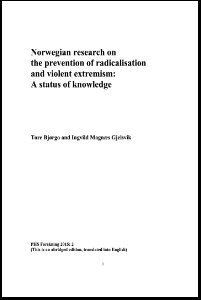By Anthony Morgan, Timothy Cubitt, Isabella Voce
Using data from a large national survey of online Australians, we examined the presence of risk and protective factors for cognitive and behavioural radicalisation among individuals who participated in an anti-authority protest since early 2020.
Anti-authority protesters exhibited more risk factors and fewer protective factors for cognitive and behavioural radicalisation than other respondents, including people who had protested in support of other issues or movements. They were also more likely to justify violence in support of their cause and willing to support or participate in violent or unlawful behaviour on behalf of their group.
These findings show that people who participated in anti-authority protests were more vulnerable to radicalisation compared with other protestors and non-protestors. The results have implications for responding to protest movements that promote anti-government sentiment, that spread disinformation and that are exploited by malicious actors.
AIC Research Report 31
Canberra: Australian Institute of Criminology, 2024. 62p.







